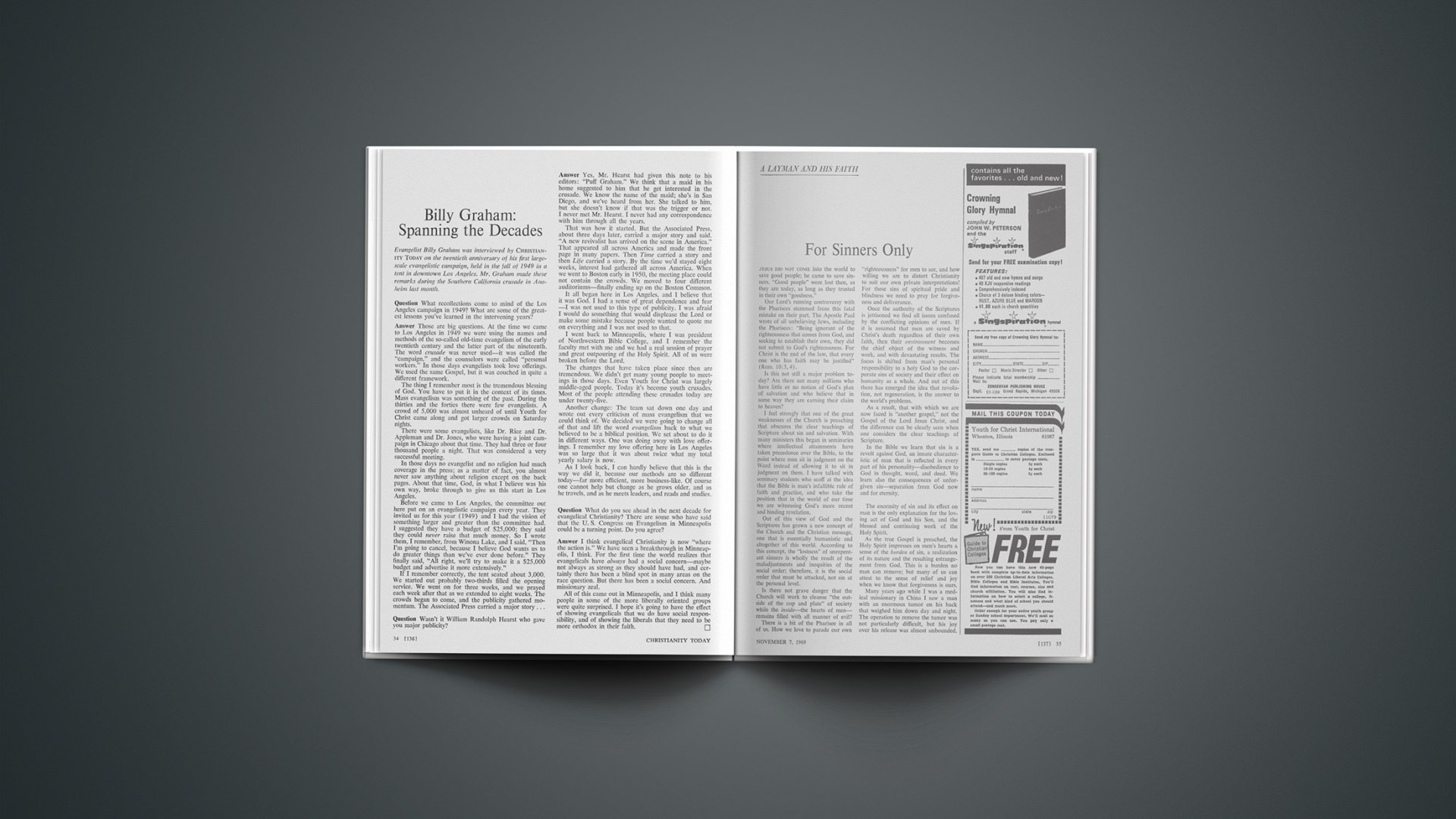On October 31, 1517, Martin Luther, using the news medium available to him, expressed some of his reservations about church doctrine and government by posting ninety-five theses on the church door in Wittenberg. Little did he realize that his theses, intended for academic debate, would spark a reformation that would change the course of history.
Luther’s protest seems relatively mild when compared with that being voiced by an impressive number of Catholic clergy and laity some 452 years later. The Synod of Bishops, which recently convened in Vatican City at the call of Pope Paul VI, reflected something of the current upheaval within the church. The more than 140 prelates in attendance debated one of the distinctive doctrines of Roman Catholicism—the Pope’s supreme authority in the church. “Progressives,” including such outstanding churchmen as Leo Josef Cardinal Suenens of Belgium, Bernard Jan Cardinal Alfrink of Holland, and Julius Cardinal Doepfner of Germany, called for a move away from absolute control by the Pope toward a larger role for bishops in church government. A surprisingly large number of those who spoke pushed for a wider implementation of the principle of “collegiality” (shared authority) laid down by Vatican II.
The views of those who favor a strict papal authority were expressed by Jean Cardinal Danielou of the Roman Curia, who argued that more than ever before the church needs a firm and sole authority to face up to the decline of faith, spiritual life, and morals in the Western world. But a clear majority of the gathering favored a move in the direction of greater “bishop-power.”
The current unrest in the church was expressed even more dramatically by the European Priests’ Assembly (see News, page 46), which met in Rome at the same time as the Synod of Bishops. Some two hundred priests from eleven countries who gathered for this assembly—dubbed the “Counter-Synod”—were forced to meet at the seminary of the Protestant Waldensian Church when all other doors were closed to them. The group, which met to express solidarity with bishops committed to radical reform, sought but did not get a “dialogue” with the Pope.
Some observers have begun to speak of a new reformation comparable to that of Luther’s day. There is no doubt that change is in the wind, but the current reformation is vastly different from that of the sixteenth century. Present-day reformers would replace the absolute authority of the Pope with an authority shared by the Pope and the college of bishops, and perhaps even priests. The early reformers sought to replace papal authority with the supreme and absolute authority of Scripture. The need for reform in the Church—both Protestant and Catholic—is obvious. But reformation that does not begin by leading the Church to submission to the absolute authority of Scripture offers little cause for rejoicing.










